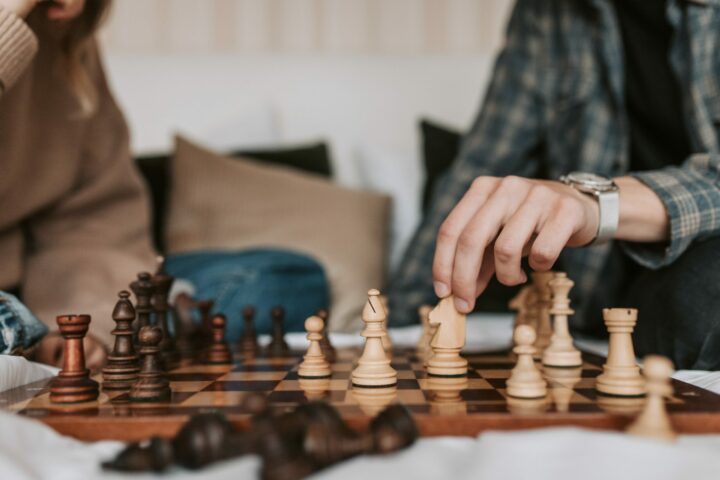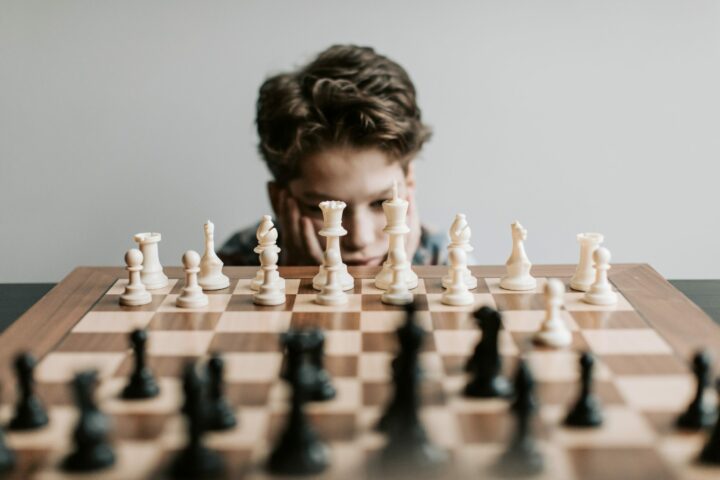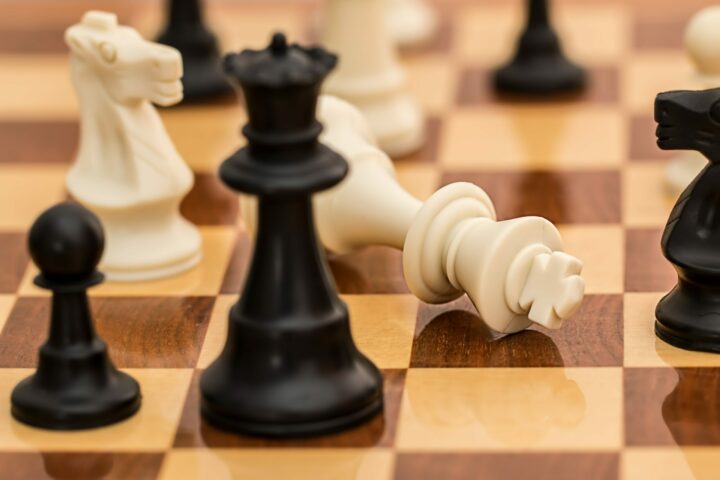Welcome to the realm of chess, where strategy, foresight, and relentless practice pave the path to victory. Whether you’re a beginner aiming to grasp the fundamentals or an experienced player seeking to elevate your game, this article is your ultimate guide to unlocking the secrets of chess mastery.
Get ready to dive into 15 thought-provoking and unconventional strategies that will revolutionize the way you approach the game, enabling you to sharpen your skills and outmaneuver your opponents.
What’s the first step towards chess greatness?
Embarking on a journey towards chess greatness requires a crucial first step: mastering the basics. From understanding the movement of each piece to familiarizing yourself with the rules and principles, a solid foundation is essential.
Immerse yourself in the fundamental principles of openings, middlegames, and endgames. Explore the beauty of chess notation and learn to analyze games played by chess legends. By mastering the fundamentals, you lay the groundwork for future strategic brilliance and set yourself on a path to chess mastery.
How can you build a solid foundation for success?
Building a solid foundation in chess is like constructing a fortress of knowledge and skills. Begin by delving into chess literature and studying the timeless classics written by renowned chess masters. Immerse yourself in their strategic insights, tactical patterns, and positional understanding.
Engage in systematic training, solving puzzles, and working through annotated games. Enroll in chess classes, join local clubs, or find online communities to practice and learn from fellow enthusiasts. Remember, a strong foundation will fortify your game and open doors to limitless growth.
Are there any secret training techniques used by grandmasters?

Behind the mastery of grandmasters lie certain training techniques that pave their path to success. These techniques encompass a combination of tactical drills, strategic exercises, and endgame studies. Grandmasters often engage in deliberate practice, analyzing their own games, and seeking feedback from experienced coaches.
They harness the power of technology, utilizing chess software and databases to sharpen their skills. Moreover, they focus on developing intuition and pattern recognition through repetitive exposure to various positions. By incorporating these techniques into your own training regimen, you can emulate the methods employed by chess masters and unlock your full potential.
Can visualization enhance your chess prowess?
Visualization is a powerful tool that can elevate your chess prowess to new heights. By honing your ability to mentally visualize the chessboard and foresee moves, you gain a tactical advantage.
Train your mind to picture different variations and calculate possible outcomes without the aid of a physical board. Immerse yourself in visualization exercises, solving puzzles in your mind and playing out full games mentally. With practice, you’ll find yourself making more intuitive and accurate decisions during actual play, surprising your opponents and taking your game to a whole new level.
Is there a way to overcome common strategic pitfalls?
Chess is a game of traps, pitfalls, and hidden dangers. To overcome these strategic pitfalls, you must develop a keen awareness and a deep understanding of common mistakes. Study the concepts of overextension, weak squares, and the importance of piece coordination.
Learn how to anticipate your opponent’s plans and identify potential tactical vulnerabilities. By acquiring a solid grasp of strategic principles, you can navigate through treacherous terrain, sidestepping common pitfalls and positioning yourself for victory.
How can you outsmart your opponents with unconventional moves?
In the battlefield of chess, outsmarting your opponents often requires the element of surprise. Unleash your creativity and explore unconventional moves that defy the norms. Break away from predictable patterns and experiment with surprising piece maneuvers.
Embrace the power of sacrifices, positional sacrifices, and unexpected pawn breaks. By catching your opponents off guard, you disrupt their plans, sow seeds of doubt, and gain a distinct psychological advantage. Embrace the art of the unexpected and watch as your opponents struggle to adapt to your innovative approach.
Are there any hidden patterns and motifs to exploit?

Chess is replete with hidden patterns and motifs waiting to be discovered and exploited. Dive deep into the realms of tactical motifs like pins, forks, and skewers. Unearth the secrets of positional concepts such as open files, pawn structure weaknesses, and outpost squares.
Develop your eye for pattern recognition, allowing you to identify recurring motifs in different positions. By harnessing the power of these hidden patterns, you gain a strategic edge, setting traps and capitalizing on your opponent’s vulnerabilities.
Can analyzing famous chess games boost your performance?
Analyzing famous chess games is a treasure trove of inspiration and knowledge that can significantly boost your performance. Delve into the games of chess legends, dissecting their moves, strategic plans, and decision-making processes.
Study the ideas behind their opening choices and learn how they navigate through complex middlegames. Observe their endgame technique and how they convert advantages into victories. By immersing yourself in the brilliance of the past, you gain invaluable insights that can shape your own playing style and elevate your performance.
How can you develop a razor-sharp calculation ability?
Developing a razor-sharp calculation ability is essential for success in chess. Sharpen your tactical vision through regular practice, solving tactical puzzles, and engaging in tactical training exercises.
Train yourself to calculate multiple moves ahead, considering various possible continuations and their consequences. Hone your ability to visualize the resulting positions and evaluate their potential outcomes. By nurturing your calculation ability, you’ll gain a tactical edge, allowing you to unleash precise and devastating combinations that leave your opponents reeling.
What are the secrets behind successful opening preparation?
Successful opening preparation in chess revolves around a combination of knowledge, flexibility, and creativity. Explore various opening systems and understand their underlying strategic ideas. Study the games of top players in specific openings to grasp their plans and typical maneuvers.
Analyze and experiment with different move orders, aiming to surprise your opponents and steer the game into positions that suit your style. Embrace the art of preparation by staying updated with the latest developments and incorporating fresh ideas into your repertoire. Remember, successful opening preparation is a delicate dance between tradition and innovation, giving you a head start and setting the tone for the rest of the game.
Can endgame mastery be the key to victory?

Endgame mastery holds the key to countless victories in chess. While openings and middlegame play set the stage, it is in the endgame where small advantages can be skillfully converted into decisive wins. Study essential endgame concepts, such as king and pawn endings, rook endings, and queen endings.
Learn the art of pawn promotion, the technique of zugzwang, and the power of opposition. Cultivate your ability to calculate accurately and assess positions objectively. By dedicating time to studying and practicing endgames, you’ll sharpen your ability to navigate the complexities of the later stages of the game, seizing victory when it matters most.
How can you improve your tactical vision and pattern recognition?
Improving your tactical vision and pattern recognition is a gateway to success in chess. Engage in regular tactical training exercises, solving puzzles that challenge your ability to spot combinations and tactical motifs. Immerse yourself in tactical patterns such as forks, pins, and discovered attacks, training your mind to identify them instinctively on the board.
Analyze the games of tactical geniuses to gain inspiration and understand their approach. Develop your intuition by exposing yourself to a wide variety of positions, allowing your subconscious mind to recognize familiar tactical themes. With time and practice, your tactical vision will sharpen, and you’ll find yourself seizing opportunities and launching devastating attacks that leave your opponents bewildered.
Is there a psychological advantage to be gained in chess?
Chess is not merely a battle of intellect but also a psychological duel. Cultivating a psychological advantage can tilt the scales in your favor. Learn to control your emotions, staying calm and composed under pressure.
Study your opponent’s habits, weaknesses, and preferred playing style, adapting your approach accordingly. Develop a poker face, concealing your intentions and making it challenging for your opponent to read your moves.
Embrace the art of psychological warfare, using strategic pauses, unexpected moves, and feints to unsettle your opponent’s composure. By gaining a psychological edge, you’ll sow doubt and create an atmosphere of uncertainty, increasing your chances of success on the chessboard.
What can you learn from your defeats and setbacks?
Defeats and setbacks in chess are invaluable learning opportunities. Instead of being disheartened, embrace them as stepping stones on your path to improvement.
Analyze your games objectively, identifying the critical moments where mistakes were made or opportunities were missed. Seek feedback from stronger players or coaches to gain fresh perspectives.
Pinpoint patterns of weaknesses or recurring mistakes, targeting them for focused practice. Embrace defeat as a teacher, learning from your errors, and evolving your playing style. Remember, setbacks are temporary, but the lessons learned from them are lasting, propelling you towards future victories.
How can you stay motivated and consistently improve your chess skills?
| Aspect | Traditional Training | Innovative Approaches |
|---|---|---|
| Focus | Emphasizes study of classic games and strategies | Encourages exploring new ideas and unconventional moves |
| Tactical Development | Solves tactical puzzles and studies tactical motifs | Engages in visualization exercises and pattern recognition training |
| Endgame Mastery | Studies classical endgame theory and practices key positions | Explores modern endgame techniques and analyzes practical examples |
| Psychological Advantage | Focuses on mental discipline and maintaining composure | Utilizes psychological tactics to unsettle opponents and gain an edge |
| Motivation and Consistency | Relies on structured training and goal-setting | Promotes a balance between enjoyment, community engagement, and growth |
Consistency and motivation are the pillars that sustain long-term improvement in chess. Set clear goals, both short-term and long-term, that align with your aspirations. Break your goals down into smaller milestones, celebrating achievements along the way.
Find a balance between structured training and enjoyment, ensuring that chess remains a source of inspiration and pleasure. Surround yourself with a supportive community of fellow chess enthusiasts, engaging in friendly competitions, sharing insights, and celebrating collective progress.
Embrace the beauty of continuous learning, exploring new aspects of the game, and broadening your horizons. With a resilient mindset and a burning passion for improvement, you’ll embark on a lifelong journey of chess mastery, consistently pushing the boundaries of your skills.
Summary
In conclusion, the path to chess greatness is paved with dedication, knowledge, and a thirst for improvement. By following the strategies and techniques outlined in this article, you can elevate your chess skills to new heights. From mastering the fundamentals and building a strong foundation to embracing the power of visualization and pattern recognition, each aspect of your game will be fortified.
By exploring the secrets of successful opening preparation, endgame mastery, tactical vision, and psychological advantage, you’ll gain a competitive edge over your opponents. Moreover, learning from defeats and setbacks and maintaining consistent motivation will ensure your growth as a chess player.
So, step onto the chessboard with confidence, armed with these valuable insights, and unlock the true potential within you. May your journey be filled with thrilling victories, profound discoveries, and an enduring love for the timeless game of chess.




